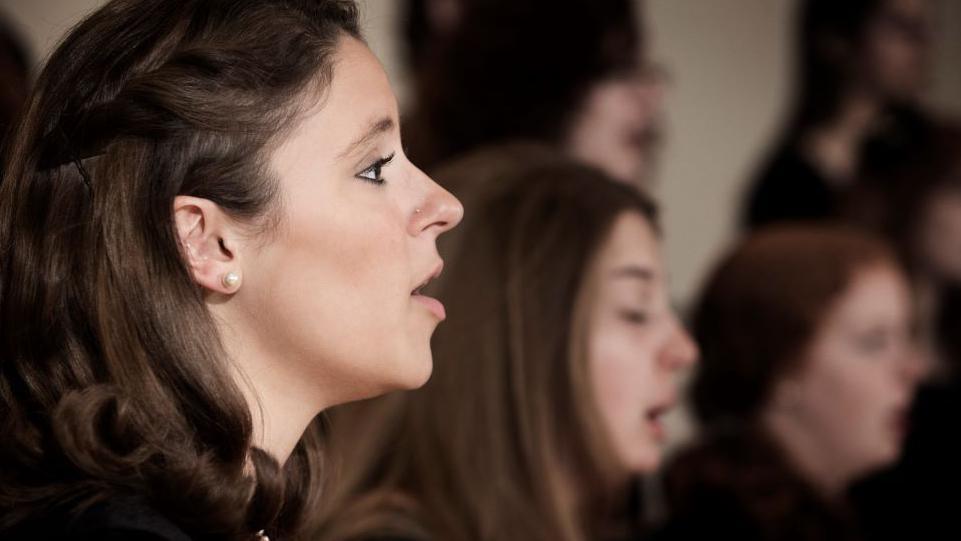London grave of Gaelic gold medallist to be revamped
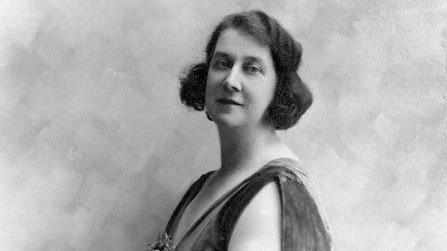
Margart Duncan was born in Islay
- Published
A gravestone dedicated to one of Gaelic's best-known singers is to be refurbished after falling into a poor condition.
Margart Duncan was born in Islay in 1888 and went on to win major prizes at the Mòd, Scotland's biggest celebration of Gaelic language and culture.
She later moved to London and was a leading member of the city's Gaelic choir. She died in 1948 and was buried in Twickenham Cemetery.
London Gaelic Choir - Còisir Lunnainn - is raising the funds needed to fix the gravestone, which is lopsided and has faded lettering.
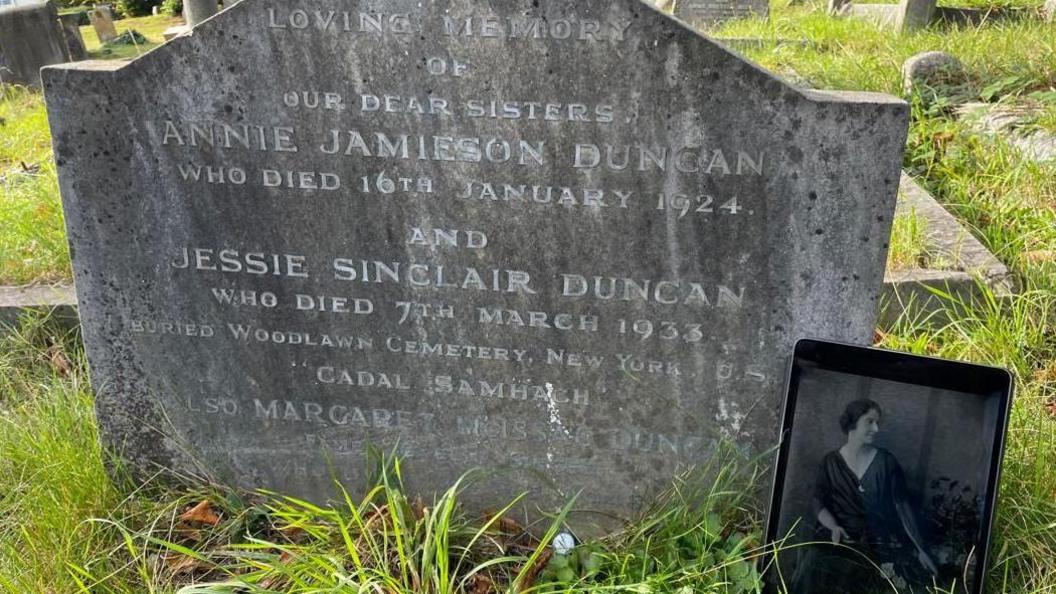
Duncan's grave in London's Twickenham Cemetery
Work is also to be done to areas of uneven ground around the grave.
Members of London Gaelic Choir noticed the issues when they visited Duncan's grave before attending last year's Mòd in Paisley.
The choir is raising about £2,000 through public donations and funding from charities.
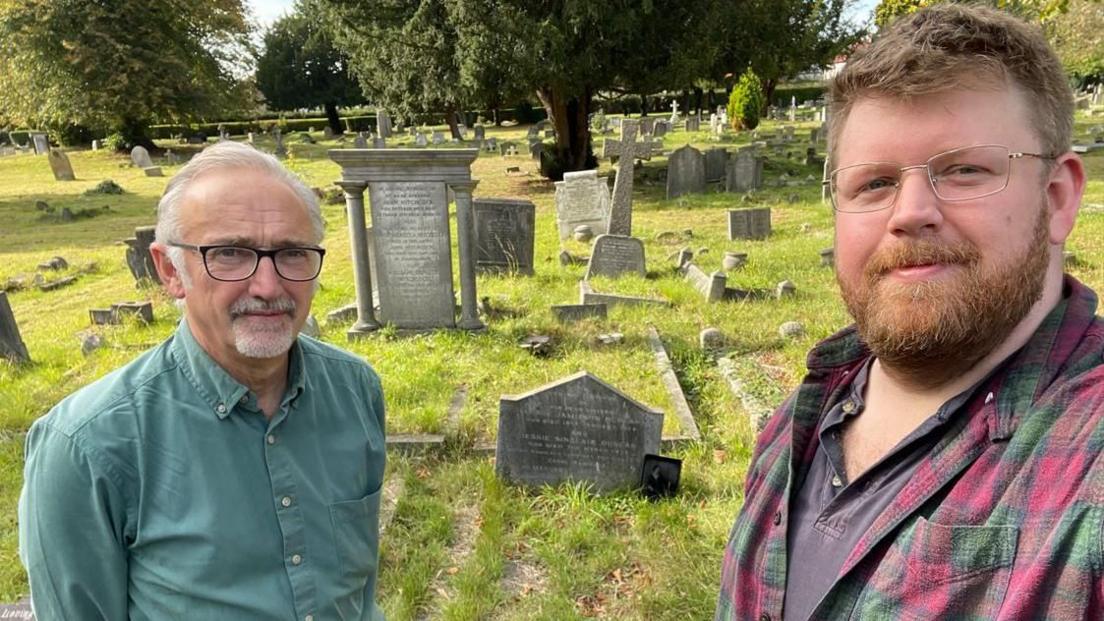
London Gaelic Choir members at Duncan's grave
Duncan started singing at a young age and won the junior silver medal at 1903's Inverness Mòd.
She won the gold medal - the festival's biggest prize - at the Stirling Mòd in 1909.
After moving to London, she served on the choir's music committee and conducted the ladies' choir at Còisir Lunnainn first Mòd in Greenock in 1925.
She also toured with her music.
The Margart Duncan Memorial Trophy was set up in her memory following her death.
Choirs, including London's, compete for it each year during the Mòd.
This year's festival is to be held in Oban in October.
Related topics
- Published17 May 2024
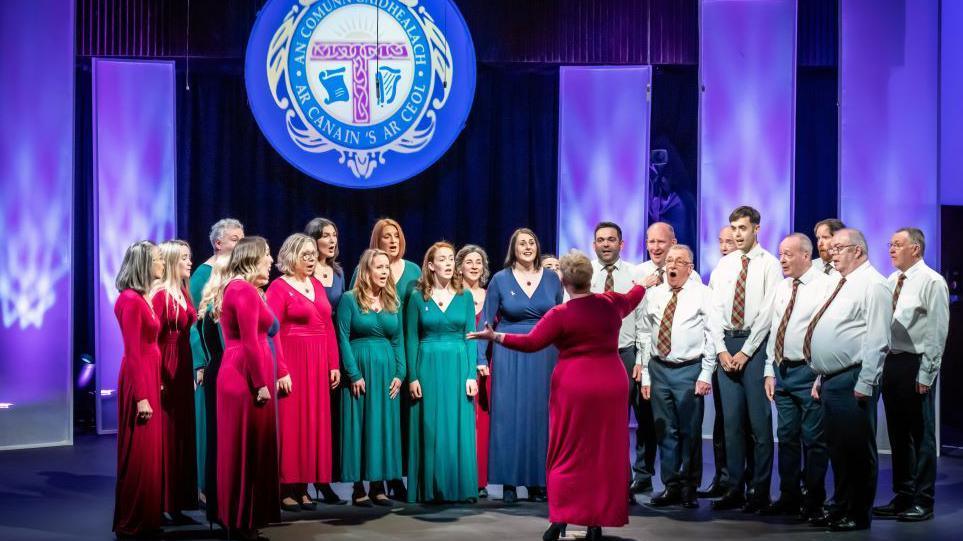
- Published8 March 2024
